Nestled between the majestic Mount Lebanon and Anti-Lebanon mountain ranges, the Beqaa Valley is a treasure trove of history, culture, and natural beauty waiting to be explored.
This fertile region has been a crossroads of civilizations, from ancient Phoenicians and Romans to Ottoman and French influences, leaving behind a rich history that is palpable in its ruins, architecture, and traditions.
As you visit the Beqaa Valley, you’ll be struck by its scenic landscapes, traversed by the Orontes and Litani rivers, making it a perfect destination for those seeking a blend of culture, history, and outdoor activities.
Discovering the Beqaa Valley: Lebanon’s Hidden Gem
As you venture into the heart of Lebanon, you’ll discover the Beqaa Valley, a region that embodies the country’s rich history and breathtaking landscapes. This valley is not just a geographical feature but a testament to Lebanon’s diverse cultural and natural heritage.
Geographic Location and Landscape
The Beqaa Valley is situated between the Mount Lebanon and Anti-Lebanon mountains, making it a unique and fertile region in the country. This strategic location has made it an important agricultural hub for millennia, with its fertile soil and favorable climate supporting a wide range of crops.

The Valley’s Cultural Significance
The Beqaa Valley has been a cultural melting pot for centuries, with various civilizations leaving their mark on the local traditions, cuisine, and way of life. You’ll encounter a rich tapestry of cultural influences as you explore the valley, from ancient Phoenician and Roman to Ottoman and French. The region is home to diverse religious communities, including Christians, Muslims, and Druze, each contributing to the valley’s unique cultural identity.
Local festivals and celebrations throughout the year showcase the valley’s cultural heritage, offering visitors a chance to experience authentic Lebanese traditions. The warmth and hospitality of the local people will make your visit to the Beqaa Valley truly memorable, as they proudly share their culture and way of life with visitors.
The Historical Significance of the Beqaa Valley
As you explore the Beqaa Valley, you’re walking through a landscape that has been shaped by centuries of history. The valley’s rich history is a result of its strategic location, making it a crossroads for trade and cultural exchange.
Ancient Origins and Civilizations
The Beqaa Valley has witnessed the rise and fall of numerous civilizations, from ancient Phoenicians and Romans to Ottoman and French influences. This diverse cultural heritage is still visible in the valley’s ancient sites and traditional villages. The region’s historical significance is further underscored by its designation as a UNESCO World Heritage site, recognizing its importance in the history of human civilization.
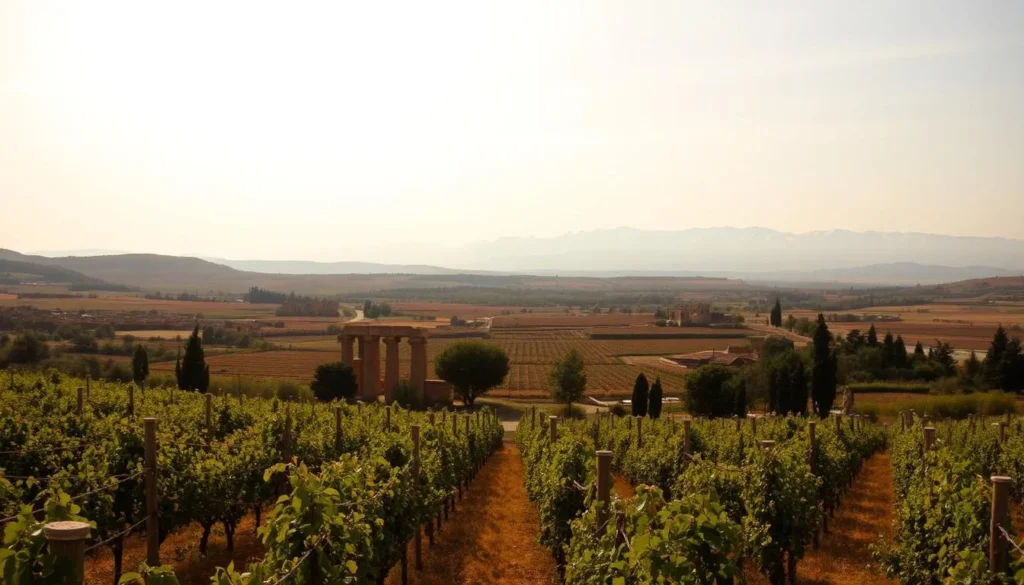
The Valley’s Role in Lebanese History
Throughout Lebanon’s more recent history, the Beqaa Valley has played a pivotal role in shaping the nation’s identity and development. The region served as an important agricultural center during the Ottoman period, and later saw significant infrastructure development during the French Mandate in the early 20th century. Today, the valley’s rich history is preserved in its cultural practices and historical sites, making it a unique destination for visitors.
| Period | Significance | Legacy |
|---|---|---|
| Ottoman Period | Agricultural Center | Established patterns of land use and farming |
| French Mandate | Infrastructure Development | Connected the valley to the rest of Lebanon |
| Modern Era | Cultural Preservation | Preserved historical sites and cultural practices |
When to Visit the Beqaa Valley
If you’re considering visiting the Beqaa Valley, timing is everything to make the most of your trip. The valley offers a unique experience throughout the year, but certain times are more favorable than others.
Seasonal Highlights and Weather Considerations
The Beqaa Valley experiences a Mediterranean climate, characterized by hot summer months and mild winters. Spring is an ideal time to visit, with mild temperatures and blooming landscapes. Autumn is also pleasant, with the harvest season in full swing, especially for wine enthusiasts.

Planning Your Trip Duration
To truly experience the Beqaa Valley, you need to plan your visit carefully. Here are some guidelines for your trip duration:
- Spend at least three days to explore the valley’s historical sites, wineries, and natural attractions.
- For a more leisurely experience, consider allocating 5-7 days to visit smaller villages and enjoy the local cuisine.
- If time is limited, a weekend trip from Beirut is a great option to get a taste of the valley.
- Many visitors combine their Beqaa Valley experience with other regions of Lebanon, creating a 10-14 day itinerary.
- Plan your visit around specific events like wine festivals or harvest celebrations to enhance your experience.
By planning your visit at the right times, you can make the most of your Beqaa Valley experience.
How to Get to the Beqaa Valley
Getting to the Beqaa Valley is easier than you think, with several transportation options available from Beirut. The valley is a significant destination in Lebanon, known for its historical sites, wine production, and natural beauty.
Transportation Options from Beirut
To travel from Beirut to the Beqaa Valley, you have several options. You can rent a car, which provides the most flexibility, allowing you to explore the valley at your own pace. Alternatively, you can use public transportation or take a taxi. The journey typically takes about an hour to an hour and a half, depending on traffic and the specific destination within the valley.
Navigating Within the Valley
Once you arrive, navigating within the Beqaa Valley is relatively straightforward. The valley stretches approximately 120 kilometers from north to south, so planning your internal transportation is essential. You can use local taxis available in larger towns like Zahle and Baalbek for short trips. Some attractions are within walking distance, particularly in town centers, making it easy to explore on foot. Bicycle rentals are also available, offering an eco-friendly way to enjoy the scenic landscapes. Consider basing yourself in a central location like Zahle and taking day trips to various attractions, simplifying your transportation needs.
| Mode of Transport | Advantages | Best for |
|---|---|---|
| Car Rental | Flexibility, convenience | Exploring the valley at your own pace |
| Local Taxis | Easily available in larger towns | Short trips within towns like Zahle and Baalbek |
| Walking | Cost-effective, scenic | Exploring town centers and nearby attractions |
| Bicycle Rentals | Eco-friendly, leisurely pace | Enjoying scenic landscapes and local scenery |

Exploring the Magnificent Temple Complex of Baalbek

The temples of Baalbek, nestled in the Beqaa Valley, are a marvel of ancient architecture and a must-visit destination in Lebanon. As a UNESCO World Heritage site, Baalbek attracts history enthusiasts and travelers alike with its colossal structures and intricate designs.
Temple of Jupiter: A Colossal Wonder
The Temple of Jupiter is among the temples of Baalbek, the largest and most prominent. Dedicated to the Roman king of the gods, Jupiter, its immense scale and intricately designed columns make it a must-see historical site. The temple’s grandeur is awe-inspiring, with remnants that speak volumes about the engineering skills of the ancient Romans.
Temple of Bacchus: Architectural Marvel
The Temple of Bacchus is another architectural gem within the Baalbek complex. Known for its well-preserved state and intricate carvings, it offers a unique glimpse into the religious and cultural practices of the ancient world. The temple’s design and the stories it tells through its sculptures make it a fascinating visit for anyone interested in history and architecture.
Tips for Visiting Baalbek
To make the most of your visit to Baalbek, consider the following tips:
- Arrive early in the morning to explore the temple complex before the midday heat and larger tour groups.
- Hire a knowledgeable local guide to bring the history of Baalbek to life.
- Wear comfortable shoes with good traction for walking on uneven stone surfaces.
- Bring sun protection, including a hat, sunscreen, and water, as the site offers limited shade.
- Allow at least 2-3 hours to properly explore the entire complex.
By following these tips, you can ensure a memorable and enriching experience at this incredible historical site.
The Role of Heliopolis in Shaping the Beqaa Valley’s Heritage
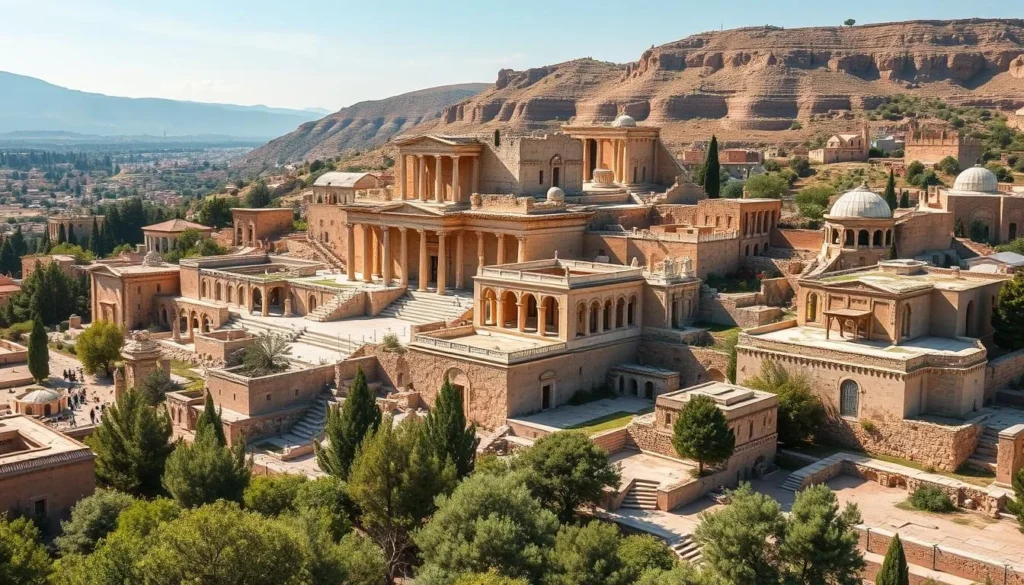
The ancient city of Heliopolis, or Baalbek, played a pivotal role in shaping the historical and cultural landscape of the Beqaa Valley. As a major religious center in antiquity, it was dedicated to the worship of various deities, notably the god Baal. The temples in the city, including the Temple of Jupiter, Temple of Bacchus, and Temple of Venus, were grand structures of worship and pilgrimage.
Religious Significance Through the Ages
Heliopolis was renowned for its religious significance, attracting pilgrims and worshippers from across the ancient world. The city’s temples were not only architectural marvels but also played a crucial role in the spiritual lives of the people. The Temple of Jupiter, with its colossal stone columns, stood as a testament to the city’s religious and cultural importance. The religious practices and ceremonies conducted in these temples have left a lasting legacy, contributing to the rich cultural heritage of the Beqaa Valley.
Archaeological Discoveries and Preservation
Ongoing archaeological work at Heliopolis continues to uncover new findings that enhance our understanding of this ancient city and its role in the Beqaa Valley’s development. Recent discoveries include additional temple structures, residential areas, and artifacts that provide a more complete picture of daily life in this important religious center. Digital preservation techniques are now being employed to create detailed 3D models of the site, ensuring that even if physical damage occurs, the knowledge of these structures isn’t lost. The preservation efforts at Heliopolis represent an important commitment to protecting Lebanon’s cultural heritage for future generations, and its designation as a UNESCO World Heritage site underscores its global significance.
The archaeological work at Heliopolis has influenced preservation approaches at other historical sites throughout the Beqaa Valley, establishing important standards for cultural heritage management. As a result, the Beqaa Valley continues to be a region of immense historical and cultural value, with Heliopolis at its heart.
Must-Visit Ancient Temples in the Beqaa Valley

With its rich history and cultural heritage, the Beqaa Valley is a treasure trove of ancient temples waiting to be explored. The valley is home to some of the most significant archaeological sites in the region, offering insights into the lives of ancient civilizations.
Temple of Venus
The Temple of Venus, part of the Baalbek temple complex, is dedicated to the Roman goddess of love and beauty. This UNESCO World Heritage Site is adorned with intricate carvings, making it an integral part of the ancient ruins at Baalbek. Visitors can marvel at its beauty and historical significance.
Temple of Adonis
The Temple of Adonis, also known for its historical significance, is another must-visit site in the Beqaa Valley. Although less documented than the Temple of Venus, it offers a unique glimpse into the region’s mythological past and the religious practices of ancient inhabitants.
Other Archaeological Sites Worth Exploring
Besides the prominent temples, the Beqaa Valley is dotted with other archaeological sites worth visiting. These include:
- The Temple of Eshmun near Sidon, a well-preserved Phoenician site dedicated to the god of healing.
- Anjar’s Umayyad ruins, showcasing Islamic architectural influences and urban planning from the 8th century CE.
- The Roman temples at Niha, offering a secluded experience with well-preserved structures.
- Kamed el-Loz archaeological site, containing remains from multiple periods, including Bronze Age, Persian, Hellenistic, and Roman.
These sites provide valuable insights into the everyday religious practices and cultural heritage of the ancient inhabitants, making the Beqaa Valley a fascinating destination for history buffs and archaeology enthusiasts alike.
Beqaa Valley, Lebanon: Best Things to Do for Wine Enthusiasts
The Beqaa Valley, with its rich soil and favorable climate, has been a hub for winemaking for thousands of years, offering a unique experience for wine enthusiasts. You can explore the region’s ancient heritage and enjoy the modern wine culture that has developed.
The Valley’s Wine-Making Heritage
Winemaking in the Beqaa Valley dates back to ancient times, with evidence suggesting that the Phoenicians and later the Romans cultivated vineyards and produced wine in the region. This historical significance has laid the foundation for the valley’s future as a prominent wine-producing hub. The region’s unique terroir and climate have contributed to its reputation for producing high-quality wines.

Wine Tasting Tours and Experiences
You can indulge in various wine tasting tours and experiences throughout the Beqaa Valley. Many wineries offer guided tours, allowing you to learn about the wine-making process and sample some of the best wines. Some wineries also provide the opportunity to participate in grape picking during the harvest season.
| Winery | Tour Type | Wine Tasting |
|---|---|---|
| Château Ksara | Guided Tour | Red, White, and Sparkling Wines |
| Château Musar | Self-Guided Tour | Premium Red and White Wines |
| Domaine des Tourelles | Private Tour | Boutique Wines and Olive Oil |
Seasonal Wine Events
The Beqaa Valley hosts various wine events throughout the year, catering to different interests and preferences. You can enjoy the harvest season in September and October, with many wineries offering special events. The annual Vinifest showcases Beqaa Valley wines alongside others from across Lebanon, featuring tastings, workshops, and cultural performances.
- Harvest season (September-October) with grape picking opportunities
- Spring wine festivals celebrating new vintage releases
- Winter wine events focusing on robust red wines
- Special dinners, concerts, and art exhibitions at individual wineries
As you explore the Beqaa Valley’s wine culture, you’ll discover a wine scene that is both rich in history and vibrant with modern experiences. Whether you’re a seasoned oenophile or just starting to appreciate wine, the Beqaa Valley has something to offer.
Top Wineries to Visit in the Beqaa Valley
As you explore the Beqaa Valley, you’ll discover a plethora of wineries that are sure to delight any wine enthusiast. The region is renowned for its exceptional wine production, thanks to its fertile soil and favorable climate.

Château Ksara: Lebanon’s Oldest Winery
Château Ksara is one of Lebanon’s oldest and most renowned wineries, with a rich history of winemaking dating back to the mid-19th century. Visitors can tour the underground cellars and enjoy tastings of their diverse wine selection.
Château Musar: Internationally Acclaimed Wines
Château Musar is celebrated for its internationally acclaimed wines, which have garnered recognition worldwide. The winery is known for its distinctive wine styles, which reflect the unique terroir of the Beqaa Valley.
Domaine des Tourelles: Boutique Wine Experience
Domaine des Tourelles offers a boutique wine experience, with a focus on producing high-quality wines using traditional methods. Visitors can enjoy a personalized tour and tasting of their latest vintages.
Other Notable Wineries
In addition to the aforementioned wineries, the Beqaa Valley is home to several other notable establishments. These include:
- Château Kefraya, known for its stunning estate and elegant wines.
- IXSIR, which combines sustainability with quality wine production.
- Château St Thomas, a family-owned winery offering a warm welcome and unique wine tastings.
- Massaya, which produces excellent wines and craft spirits.
- Couvent Rouge, a cooperative of local farmers providing a different perspective on the region’s wine industry.
Agricultural Treasures of the Beqaa Valley
As one of Lebanon’s primary agricultural regions, the Beqaa Valley is celebrated for its fertile soil and ideal climate. This makes it an ideal location for growing a variety of crops, including grapes, apples, vegetables, wheat, and other grains.
The Fertile Lands and Traditional Farming
The Beqaa Valley’s fertile lands have been the backbone of Lebanon’s agricultural sector for centuries. The region’s traditional farming practices have been preserved and passed down through generations, contributing to the country’s rich agricultural heritage. You can experience the valley’s agricultural bounty firsthand by visiting its numerous farms and learning about traditional farming methods.

Farm Tours and Local Produce
Several farms in the Beqaa Valley welcome visitors for educational tours, offering hands-on experiences like fruit picking and vegetable harvesting. You can also visit farmers’ markets in towns throughout the valley to purchase fresh, seasonal produce directly from the people who grow it. Additionally, artisanal food producers in the region transform the valley’s agricultural bounty into traditional Lebanese products, such as pomegranate molasses and preserved vegetables, making perfect souvenirs.
Some farms in the Beqaa Valley also offer beekeeping tours, where you can learn about honey production and sample different varieties influenced by the valley’s diverse flora. Agritourism is growing in the region, with some farms offering accommodations that allow you to fully immerse yourself in the agricultural rhythms of the Beqaa Valley.
Natural Beauty and Outdoor Activities
From hiking trails to serene lakes, the Beqaa Valley is a treasure trove of natural beauty and outdoor adventure. You can explore the great outdoors and experience the unique landscapes that this region has to offer.

Hiking Trails and Mountain Views
The Beqaa Valley offers numerous hiking trails that cater to different skill levels, providing breathtaking views of the surrounding mountains. As you hike, you’ll be surrounded by the natural beauty of the valley, with its lush greenery and scenic vistas.
The trails allow you to explore the region’s diverse landscapes, from rugged mountains to serene valleys. You’ll have the opportunity to take in the panoramic views from the top, making the hike a truly rewarding experience.
Lake Qaraoun and Water Activities
Lake Qaraoun, Lebanon’s largest artificial lake, is a must-visit destination for outdoor enthusiasts. The lake offers a range of activities, including boating and fishing, allowing you to enjoy the scenic views of the surrounding mountains.
- Lake Qaraoun, Lebanon’s largest artificial lake, offers a refreshing contrast to the valley’s agricultural landscape, with its blue waters reflecting the surrounding mountains.
- Boating on the lake provides unique views of the Beqaa Valley from the water, with rental options available for those wanting to explore at their own pace.
- Fishing enthusiasts can try their luck catching species like carp and catfish, with local guides available to show you the best spots.
- The shoreline of Lake Qaraoun features several restaurants where you can enjoy fresh fish while taking in the scenic views across the water to the mountains beyond.
- During spring and fall, the lake becomes an important stopover for migratory birds, making it an excellent destination for birdwatching and wildlife photography.
Culinary Delights of the Beqaa Valley
As you explore the Beqaa Valley, you’ll discover a rich culinary heritage that reflects the region’s history and culture. The valley is renowned for its traditional Lebanese cuisine, farm-to-table experiences, and exceptional restaurants.
Traditional Lebanese Cuisine
Traditional Lebanese cuisine in the Beqaa Valley is characterized by its use of fresh, local ingredients and traditional cooking methods. You can expect to savor dishes made with locally sourced produce, meats, and spices. Tawlet Ammiq is a notable example, showcasing local ingredients and traditional recipes with different local women taking turns as chef each day.
Lebanese cuisine is known for its mezze, including dips like hummus and tabbouleh, along with grilled meats and fresh bread. The emphasis on local ingredients ensures that the food is not only delicious but also authentic.
Farm-to-Table Experiences
Farm-to-table experiences are a highlight of visiting the Beqaa Valley. Many local farms offer tours and tastings, allowing you to sample the freshest produce and understand the region’s agricultural practices. You can enjoy a unique experience at these farms, learning about traditional farming methods and savoring the flavors of the valley.
Best Restaurants in the Region
The Beqaa Valley is home to numerous excellent restaurants, each offering a unique dining experience. Khan el Maksoud in Zahle is a standout, providing a classic Lebanese dining atmosphere in a historic stone building with riverside seating and live music on weekends.
For a different culinary experience, visit one of the fish restaurants near Lake Qaraoun, where you can enjoy freshwater fish prepared according to local recipes. Chtaura’s roadside restaurants are also worth visiting for their breakfast offerings, including fresh kaak and labneh.
| Restaurant | Location | Specialty |
|---|---|---|
| Tawlet Ammiq | Ammiq | Local ingredients and traditional recipes |
| Khan el Maksoud | Zahle | Classic Lebanese cuisine |
| Fish Restaurants | Lake Qaraoun | Freshwater fish |
| Chtaura’s Roadside Restaurants | Chtaura | Breakfast offerings |

Wine estate restaurants like those at Château Kefraya and Château Ksara offer refined Lebanese cuisine paired with excellent local wines, often with spectacular views of the surrounding vineyards. This combination of delicious food and wine makes for a memorable dining experience.
Where to Stay in the Beqaa Valley
When visiting the Beqaa Valley, you’ll find a diverse range of accommodations to suit every traveler’s needs. The region offers various places to stay, ensuring that your visit to this beautiful destination is comfortable and enjoyable.
Luxury Options
For those seeking a luxurious experience, the Beqaa Valley has several high-end hotels and resorts. These establishments offer top-notch amenities and services, making your stay truly unforgettable.
Mid-Range Accommodations
Travelers looking for a balance between quality and affordability will find mid-range accommodations in the Beqaa Valley to be a great choice. These hotels and guesthouses provide comfortable stays without breaking the bank.
Budget-Friendly Stays
For the budget-conscious traveler, the Beqaa Valley offers several affordable options. You can stay in hostels, go camping in designated areas, stay in monastery guesthouses, participate in homestay programs, or even stay in university dormitories during the summer. These options not only save you money but also offer unique experiences.
- Hostels in major towns provide affordable dormitory and private room options.
- Camping is permitted in designated areas throughout the Beqaa Valley.
- Monastery guesthouses welcome visitors of all faiths.
- Homestay programs connect travelers with local families.
- University dormitories in Zahle sometimes offer summer accommodations.
Regardless of your budget, the Beqaa Valley has a place for you to stay and enjoy the beauty and culture of this Lebanese destination.
Day Trips from the Beqaa Valley

As you explore the Beqaa Valley, you’ll discover that there are numerous exciting day trip options to enhance your travel experience. The valley is surrounded by a wealth of historical, cultural, and natural attractions that are easily accessible.
Exploring Zahle: The Valley’s Capital
Zahle, known as the “Bride of the Bekaa,” is a city in eastern Lebanon and the capital of the Bekaa Governorate. With a population of 150,000, it’s the largest Christian city in the Middle East. You can explore this vibrant city, known for its rich history, cultural significance, and delicious Lebanese cuisine.
Nearby Attractions Worth Visiting
The Beqaa Valley is surrounded by several attractions worth visiting on a day trip. Some of the top recommendations include:
- The ancient city of Anjar, about 30 minutes from Zahle, with its well-preserved 8th-century Umayyad ruins.
- Mount Lebanon, with cedar reserves like Barouk offering hiking opportunities and the chance to see Lebanon’s iconic cedar trees.
- The historic town of Beit ed-Dine, with its magnificent 19th-century palace showcasing Lebanese architecture and design.
- The Ksara Caves near Zahle, providing an interesting underground experience.
- Nearby ski resorts like Mzaar Kfardebian, allowing you to combine your Beqaa Valley exploration with winter sports or summer mountain activities.
These day trips offer a great way to experience the diversity of Lebanon’s culture, history, and natural beauty, making your trip to the Beqaa Valley even more memorable.
Conclusion
The Beqaa Valley is more than just a destination; it’s an immersive experience that leaves a lasting impression on its visitors. As you explore this remarkable region, you’ll discover a unique blend of historical wonders, natural beauty, culinary delights, and cultural experiences that make it an essential destination for anyone visiting Lebanon.
From the awe-inspiring ancient temples of Baalbek to the world-class wineries scattered throughout the region, the Beqaa Valley provides attractions that appeal to a wide range of interests and travel styles. The agricultural abundance of the valley not only creates a picturesque landscape but also forms the foundation for some of the most delicious and authentic food experiences in the country.
Throughout your journey, you’ll encounter the legendary Lebanese hospitality, with locals proud to share their heritage, traditions, and way of life with visitors. Whether you’re exploring for a few days or lingering longer, the Beqaa Valley will leave you with lasting memories and likely a desire to return.
The valley’s relatively compact size belies its incredible diversity, allowing you to experience different landscapes, historical periods, and cultural influences within short distances. As tourism continues to develop, visiting now offers a perfect balance of established infrastructure and authentic experiences.
For photographers, food lovers, history buffs, and cultural explorers alike, the Beqaa Valley represents one of the Middle East’s most rewarding destinations. Your experience in the Beqaa Valley will give you insights into the rich tapestry of Lebanese identity and the country’s significant contributions to world heritage and culture.
The above is subject to change.
Check back often to TRAVEL.COM for the latest travel tips and deals.

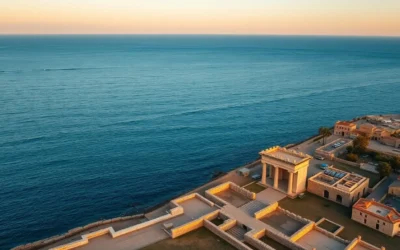
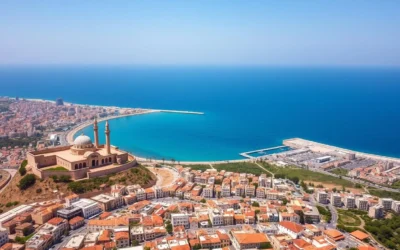
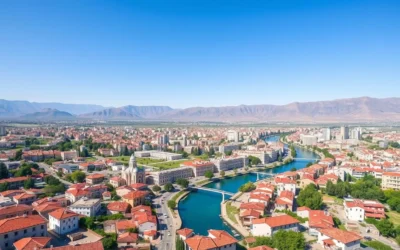
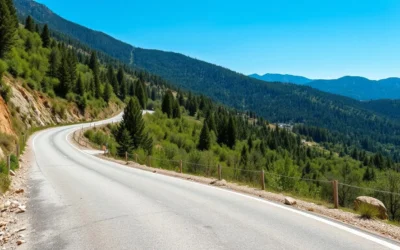
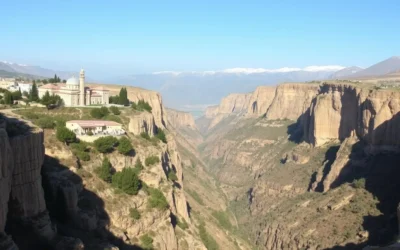
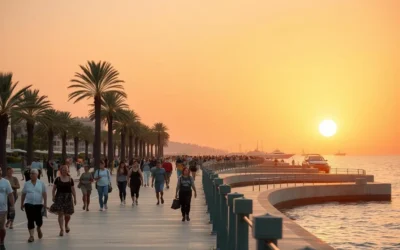
0 Comments